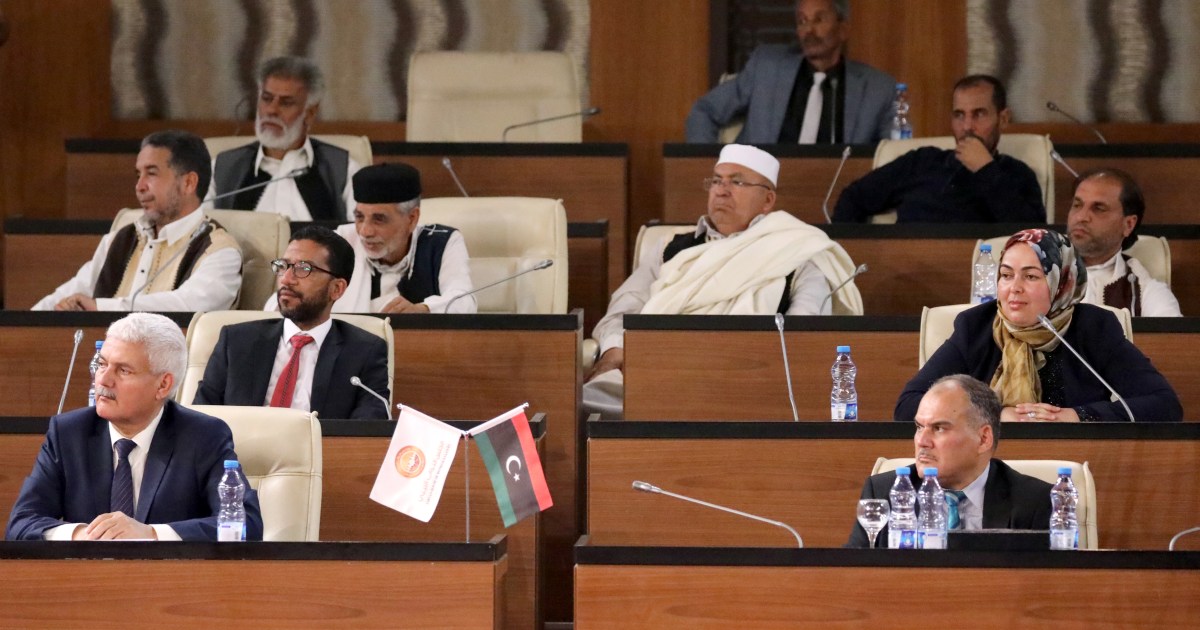The Libyan Parliament, held in Tripoli, announced today its complete rejection of the decision of its Egyptian counterpart to send forces outside the borders adjacent to the Libyan territories, while Turkish President Recep Tayyip Erdogan renewed his support for the government of reconciliation. This comes amid international condemnation and fears of the consequences of the Egyptian decision.
"We consider what was issued by the Egyptian parliament as a direct threat to use force, and to disclose the intention to violate the sovereignty of Libya," the Libyan parliament said in a statement.
The statement continued, "Libya does not pose any threat to the Egyptian national security until the Egyptian parliament alludes to military intervention in it," stressing that "Egyptian interventions contributed to the aggression against Libya's sovereignty, targeting its legitimate authority."
In his statement, the House of Representatives said, "We call on the international community to shoulder its responsibilities and explicitly condemn this threat, and we call on the Al-Wefaq government to be fully prepared to respond to this threat politically and practically."
The Egyptian Parliament had agreed, in a secret session yesterday, Monday, to send "elements of the armed forces on combat missions outside the borders of the state, to defend Egyptian national security in the western strategic direction," probably referring to Libya.
Last June, Egyptian President Abdel-Fattah El-Sisi said, while inspecting a military base adjacent to Libya, that Sirte and Al-Jafra in eastern Libya crossed a red line, in a statement that the Al-Wefaq government considered a declaration of war and an infringement on Libyan sovereignty.
In Ankara, Turkish President Recep Tayyip Erdogan renewed his support for the reconciliation government, stressing that his country will not allow any reckless action in Libya, in a speech to him today during an evaluation meeting for the performance of the government of the presidential system in the past two years.
He stressed that "his country's support for the legitimate government in Libya enabled it to defeat the revolutionaries who were threatening the capital, Tripoli," adding that his country has no ambitions in any country and that its military operations aim to protect its security and support the oppressed, as he put it.
In the latest reaction to the Egyptian decision, German Foreign Minister Haikou Maas criticized the vote, saying at a press conference during his visit to the Greek capital, Athens, that any decisions in favor of conducting military operations cannot be welcomed because they always involve a risk of contributing to the escalation, as he put it.
For its part, the United Nations said yesterday that the decision of the Egyptian parliament is a source of great concern, warning against adding "kerosene to the fire", according to a spokesman for the United Nations Secretary-General, Stephen Dujarric.
In response to these condemned responses, a spokesman for the Libyan Parliament, held in Tobruk Abdullah Bleih, justified the Egyptian parliament’s decision that it was in response to the call of the Speaker, Aqila Saleh, the Egyptian army to intervene in Libya.
Belaheq added that the Egyptian parliament’s decision also came in response to the call of sheikhs and notables from the Libyan tribes in their meeting with President Sisi last Thursday.
He explained that the goal of the Egyptian army’s intervention in Libya is to address all threats to the security of Libya and Egypt, the common nationalist, and what he described as the ambitions of Turkey, which aims to plunder the country's wealth and destabilize Libya, as he put it.
In the context, Russian Foreign Minister Sergey Lavrov discussed, in a phone call, with his Egyptian counterpart, Sameh Shoukry, developments in the situation in Libya.
According to a statement of the Russian Foreign Ministry, the two sides stressed that there is no alternative to negotiations to settle the Libyan crisis with the participation of all parties, and based on the outputs of the Berlin Conference, adding that the two parties stressed the importance of the Cairo Declaration issued last month to push the outputs of the Berlin Conference.
The Cairo Declaration stipulated the organization of a comprehensive Libyan dialogue, which would agree on the post-conflict stage, based on the balance of interests of the three historical regions in Libya.

